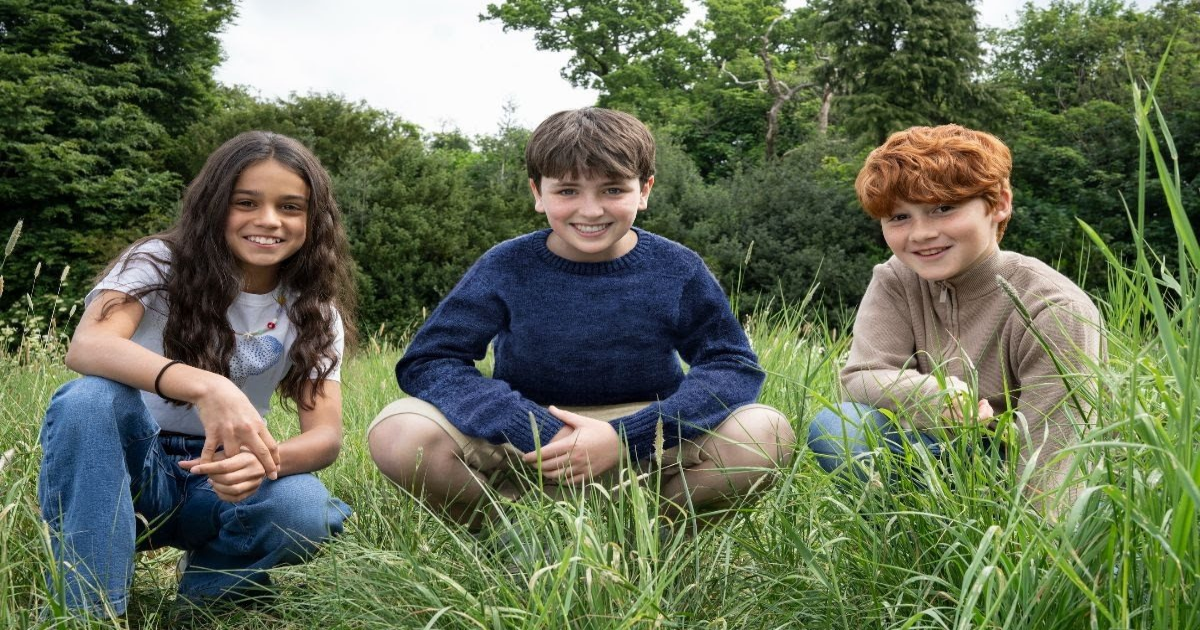Until Tuesday afternoon, very few people had heard of Dominic McLaughlin, Arabella Stanton or Alastair Stout. But now they are the most famous children in Britain, perhaps in the world, since all three have been cast as Harry Potter, Hermione Granger and Ron Weasley in the new TV series based on JK Rowling’s septet of novels.
The words ‘life-changing’ don’t begin to cover it. These three kids are going to be discussed on TikTok til kingdom come, their suitability for these hallowed roles analysed by fans who probably feel they own the characters. Then there will be the keyboard warriors voicing their opinions on anyone who has an association with the gender-critical Rowling. It makes you wonder whether it is really such a golden ticket after all.
Of course, I would not want to trample on a moment of glory for three talented youngsters, but you do worry if their parents realise what they have signed up for. The previous three Harry Potter stars – Daniel Radcliffe, Emma Watson and Rupert Grint – were all subjected to the harsh glare of fame from a very young age, but at least in the early stages of the series’ cycle, did not have to deal with the fiery pit of social media (though Radcliffe has said the pressures of fame led him to alcohol abuse). By the time the last film came out in 2011, the landscape had irrevocably changed.
Emma Watson, who played Hermione Granger in the original Harry Potter series, being stormed by fans in 2009 – PA Wire
The cliché about child actors is that they end up damaged in some way by the experience. Certainly there are many casualties: Judy Garland, River Phoenix, Corey Haim, Gary Coleman, Jack Wild – all of whom endured difficult lives that were often linked to their early experiences (Garland, for example, was put on pep pills during the making of The Wizard of Oz, the consequences of which ultimately led to her premature death).
Then there are the survivors, the ones like Corey Feldman, Tatum O’Neal and Macaulay Culkin who, to me, always seem like ghosts of their former selves, in desperate need of a hug. An interesting case is Drew Barrymore, who had developed a drinking problem by 11 and drug addiction by the age of 12, and is now unashamedly honest about what happened. She has even said that being put in an “institution” for a year and a half at the age of 13 gave her the discipline she needed.
Drew Barrymore in 1985 – Shutterstock
Those are just some of the high-profile cases. I remember reading about Stephen Archibald who, aged 13, was cast in Bill Douglas’s My Childhood (1972), the first of an acclaimed trilogy which reflected on Douglas’s impoverished upbringing in 1940s Scotland. While Douglas escaped his past, Archibald wasn’t so lucky. He died young, at 38, having spent time in prison. He barely learned to read.
Admittedly, the case of Stephen Archibald is an extreme case, and indeed he was cast by Douglas precisely because he came from hardship and could so effortlessly convey an emotional truth. But I think it does show that success as a child actor does not provide a stable building block – either for a future acting career or for a secure future life.
There is also the fact that child acting is not necessarily all jolly japes. Those that started out young in the industry often talk about how they were expected to behave like adults, had their youthful exuberance kept down by harassed directors. In an industry where time is money, the emotional welfare of a child performer is not necessarily going to be a priority.
I once knew somebody who worked regularly as an extra on Grange Hill, Phil Redmond’s provocative and much-criticised school soap which ran for 30 years until 2008. She told me that the overwhelming feeling on set was one of boredom, that there was a lot of hanging around in green rooms, or catching up on schoolwork with on-set tutors. When I asked her whether she felt it was worth it, she said it wasn’t: she had sacrificed her education and, most importantly, that sense of freedom, that all-important sense of simply being a child.
I know that things have changed in the past couple of decades. There was a time when the British stage school was a major part of the entertainment industry. These tended not to be gleaming beacons of excellence, but rather rackety institutions for talented tots – often working-class kids who were able to pay the school fees through appearances in West End shows, and on TV in advertisements or dramas which, in the 1970s and 1980s were enjoying a golden age.
Stephen Archibald, aged 13, in Bill Douglas’s My Childhood (1972) – Alamy
While the stage school model has not exactly been discredited, there are very few left today (and those that are, such as the Sylvia Young Theatre School in London, have upped their game academically), with parents realising that a mainstream education is probably the sensible option – unless their child has a yen for a career in cruise-ship entertainment. Now, the shift is to part-time performing arts schools such as Stagecoach and the Pauline Quirke Academy, both of which have many bases throughout the UK. The pushy stage mother, I suspect, is becoming a thing of the past.
So far, the young cast of the new Harry Potter series have met with a very positive reaction, with the overwhelming sense that they should all be given a chance to settle into their roles. I hope this kindness prevails because, as we know, the modern world is unsparing – even towards those who are very young.



